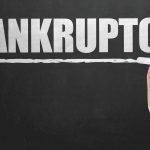When you owe money to a bank or credit union and also have money on deposit with the same institution, the bank/credit union has a right to setoff the debt owed to it against the funds on deposit. This right is based on the contract with the bank the debtor signed when he or she first opened the account as well as the general common law.
How does a setoff work?
Setoff means that the bank has the right to offset the debt owed to it against the funds it holds on deposit in any account of the debtor, including checking, savings, money market, and certificates of deposit (CDs). The bank is not required to provide advance notice to the debtor of its intention to exercise its right of setoff. The bank deducts the funds from the debtor’s account and credits them against the debt owed to the bank. Once the bank has setoff the debtor’s funds against the debt owed to the bank this may cause the debtor’s account to overdraft because the account will have insufficient funds to cover outstanding checks after the bank has setoff. For people whose paycheck is directly deposited to their bank, an additional problem is that they can find their funds swept up by the bank on an ongoing basis for more than one pay period.
Which debts can a bank exercise its right of setoff to pay?
A bank will typically exercise its right of setoff for any debts to the bank that are delinquent and have not been paid after demand has been made on the debtor. Such debts may include loans that the debtor has borrowed directly from the bank (such as under a line of credit, overdraft accounts, or car loan), loans the debtor has borrowed from bank affiliates (such as a department store charge card issued by the bank), and third-party loans that the debtor has guaranteed (such as a loan from the bank of a friend, relative or business with which the debtor is affiliated). Some banks are very active credit card lenders – particularly for store charge cards. Two current examples are HSBC and Citibank, both of which have extensive credit card operations for store charge cards. In the minds of most consumers, however, the store (such as Best Buy) rather than the bank (HSBC) is the lender, not the bank. In reality, the bank is the lender, not the store. The right of setoff can be exercised by a bank against both accounts owed by individuals and accounts owned by businesses. However, the account owner or co-owner must be obligated on the debt as well.
What happens if I file bankruptcy?
When you have funds on deposit with a bank and also owe money to the bank, the bank has the status of a secured creditor (at least as against the debtor) for the funds on deposit. This secured status arises from a “possessory lien” because the bank holds the funds. A bankruptcy filing by a debtor will not entirely eliminate the bank’s right of setoff. However, the automatic stay that you are afforded upon filing by the debtor a bankruptcy petition will bar the bank from exercising its right of setoff until it has the automatic stay lifted. The U.S. Supreme Court in a 1995 decision called Strumpf (Citizens Bank of Md. v. Strumpf, 516 U.S. 16) held that a bank may temporarily freeze a debtor’s bank account after a bankruptcy filing while it applies to the Bankruptcy Court for an order lifting the automatic stay to allow the setoff. Please note however that this ruling is subject to any exemption that you may be entitled to claim against those funds as part of your bankruptcy filing.
What You Can Do If You Are Considering Bankruptcy?
If you are considering bankruptcy and have a checking or savings account with a bank or credit union that you also have an outstanding balance on a loan or credit card, I encourage you to change banking relationships BEFORE filing. It is prudent planning and simply makes good sense. It’s your money and you have the right to bank at any institution of your choosing. This will also alleviate the need to work out this issue with your bank or credit union upon filing and keeps all of your funds available at all times for when you need them.
